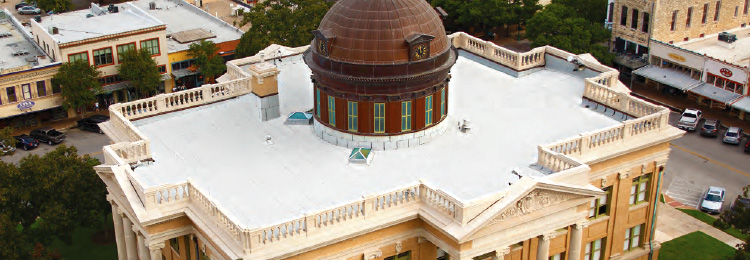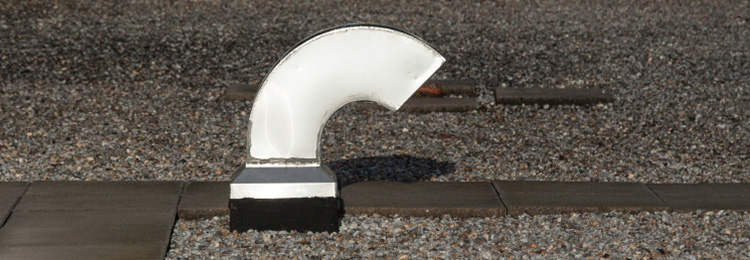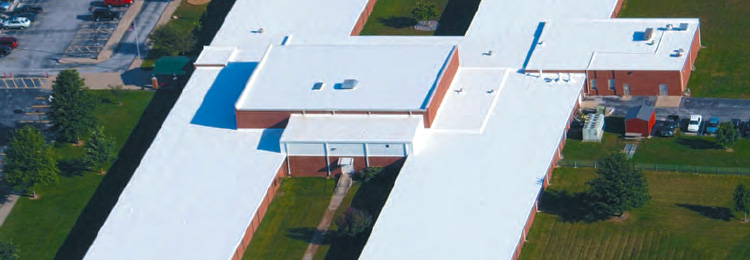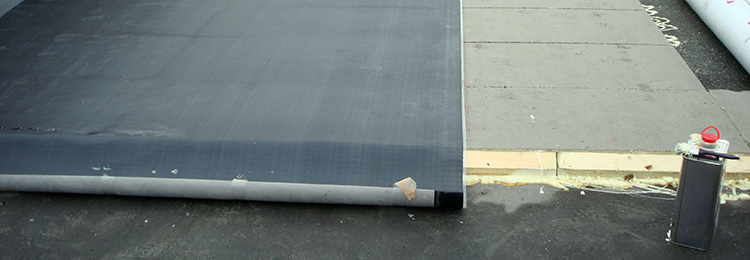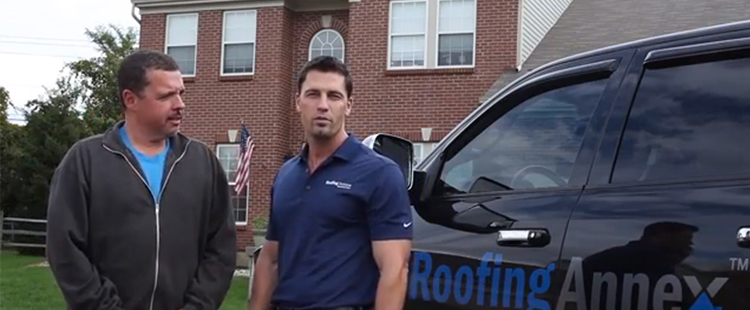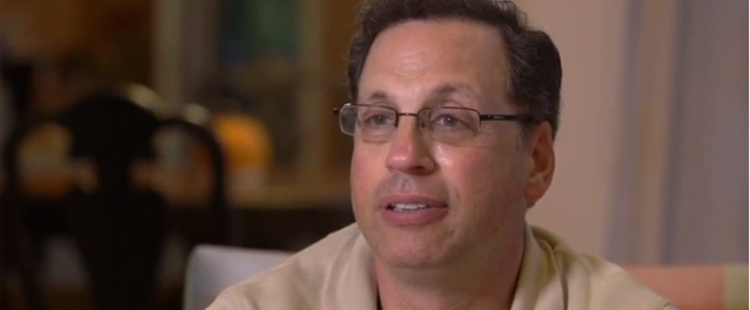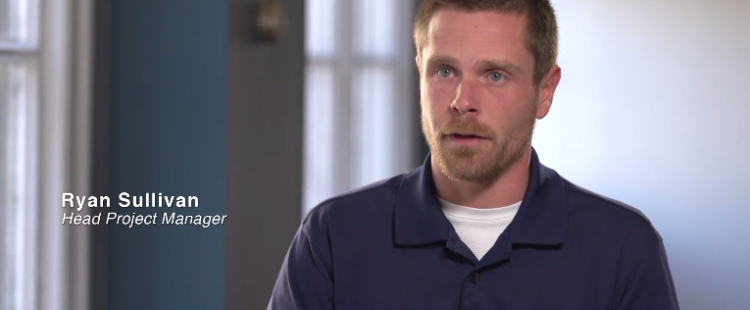Our commercial roofing team consists of the industry’s finest craftsmen; they provide superior installations on timely project schedules, leading to faster job completion. We focus on the needs of the property, the property manager and the property management company, so you can stay focused on your business and your occupants. From our Cincinnati headquarters, we serve the majority of Ohio. Roofing Annex’s Lake Zurich office services Chicago’s northern suburbs.
Roofing Annex Performs Maintenance and Restoration on the Following Commercial Roofing Types
Steep-Slope Roofs
Steep-slope roofs are known for their visual appeal. A wide range of products, such as asphalt, tile, slate, cedar or metal, can be used to enhance the architectural appearance of the property. The better half of our clients in Cincinnati, Columbus and Dayton are property managers for multi-family homes (condos, townhouses, and apartments) with steep-slope roofs. The contractors at Roofing Annex specialize in asphalt roofing and offer the best product, most competitive pricing, and most extensive warranties of any roofing company in the Cincinnati area.
Metal Roofing

Metal Roofing Repair Job in Cincinnati
No matter what kind of roofing style, color or finish you have now, there’s a metal roofing style to match or complement the look of your building. In addition to the panelized metal roofing systems commonly used on commercial buildings, today’s metal roofing is available in designer looks that simulate shingles, slate, shakes or slate.
Roofing Annex is proud of the metal roofing work we’ve done in the Cincinnati and Dayton regions but we want to remind businesses that this type of roofing needs annual maintenance. Unfortunately, we’ve found that it ranks highest in overall neglect due to self-repair.
Modified Bitumen
Modified bitumen roofing is asphalt-based and is a close cousin of the built-up roofing designed for buildings with low-slope or flat roof structures. There are numerous surfacing options for this system, including a factory-applied mineral surface, a gravel surface, and highly reflective “cool roof” coatings that help save on building cooling costs.
Major modified bitumen repairs we make in Ohio involve priming the membrane and then patching with a modified bitumen material that is 8 inches wider in all directions, with 3-inch radius corners. Depending on the modified bitumen roof membrane type, the patch can be applied hot or cold, or it can be torched down. The majority of styrene-butadiene-styrene modified bitumens today are compatible with hot asphalt. Atactic polypropylene modified bitumens can be patched with a hand torch or compatible cold adhesives.
Top 7 Problems and Solutions with Hot Bituminous Roofing in Cincinnati
Temperature control of asphalt
Use infrared thermometers
Mopping practices
Follow specifications; ensure equipment is OK
Poor interply integrity
No foot traffic; don’t install too hot
Improper flashing
Ensure proper height and length of flashing
Inaccurate head laps
Check ply lines; use chalk lines
Poor base sheet attachment
Relax sheets; conduct pull-out tests
Lack of coping moisture barrier
Ensure blocking and cap are attached properly
Built-Up Roofs
One of the most popular kinds of commercial roofing systems used throughout Ohio is a built-up roof made to withstand adverse weather conditions. Its layered configuration makes it virtually impenetrable to water. Built-up roofs are relatively low maintenance and can be easy to repair. Over their life span, they are arguably inexpensive.
Polyurethane Foam
Polyurethane foam expands to approximately 30 times its original liquid volume, forming a barrier around pipes, vents and edges, resulting in a weather-tight roofing system.
Since it is applied as a spray, it is easy to install. With proper maintenance, this type of roof should last for the entire life of the building if applied right.
TPO and PVC
Thermoplastic polyolefin and polyvinyl chloride roofing, two types of thermoplastic single-ply membrane roofing, deliver excellent weathering ability and long-term strength and flexibility. In addition, they offer excellent puncture and tear resistance and superior reflection of the sun’s rays. They are also a more economical choice when compared to built-up roofing systems, making TPO and PVC prime choices when an energy-efficient, low-cost roofing system is required.
Our commercial roofing pros can create comprehensive roof maintenance solutions and plans to better protect and maintain this type of system.
EPDM
Ethylene propylene diene monomer roofing, commonly referred to as EPDM or thermoset single-ply membrane, is an extremely durable synthetic rubber roofing membrane that has demonstrated superior weathering ability through a wide range of temperatures and conditions over the past 40 years.
EPDM continues to be a top choice of architects, roof consultants and contractors for both new construction and roof replacement projects in the Cincinnati and Dayton areas.
Emergency repairs of both thermoset and thermoplastic roofs are often made with duct tape, roofing tape, peel-and-stick seam tapes, polyethylene sheets, or butyl or polyurethane sealants, depending on the size and severity of the damage. We don’t use liquid or pourable asphalt repair products on single-ply membranes. Permanent repairs usually involve resealing or re-welding large areas of open seams and/or applying professionally installed patches made of the same membrane type. This typically involves a thorough cleaning and priming of the surface to be patched.



